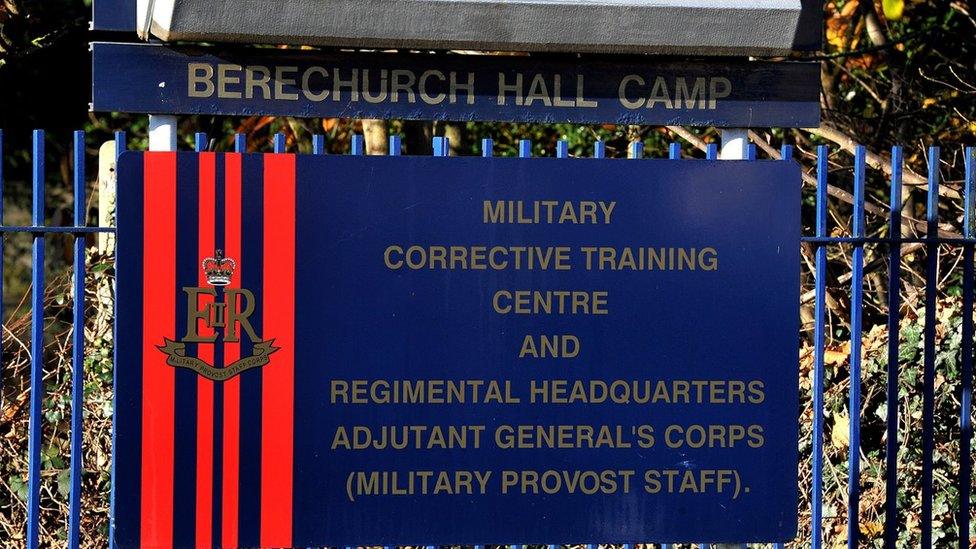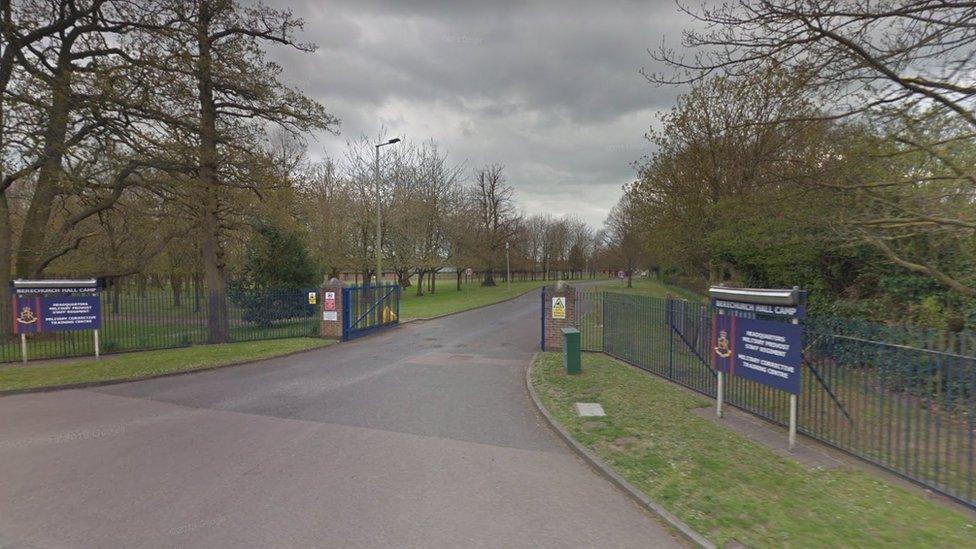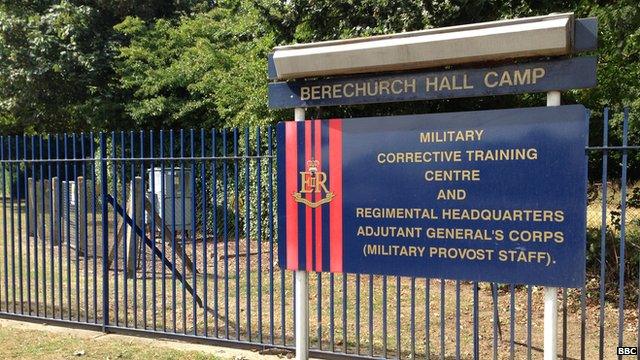Colchester military jail freeing offenders without safeguards, inspectors warn
- Published

The centre was praised by inspectors for its "strong rehabilitative culture"
Sex offenders and violent criminals are being freed from the UK's military prison "without safeguards or probation supervision", inspectors have said.
Checks were not carried out to assess whether some offenders released from the Ministry of Defence's Military Corrective Training Centre (MCTC) in Colchester could still pose a risk.
HM Inspectorate of Prisons expressed concerns after visiting in January.
The MoD said the report's findings were "already under active consideration".
The centre in Essex was previously a prisoner of war camp, and is the last remaining military jail in the UK.
It provides "corrective training" for service personnel detained under armed forces laws for anything from two weeks up to two years.
More than 260 people can be held there, but this has rarely exceeded 50 in recent years and there were 33 male detainees at the time of the inspection.

The Ministry of Defence's Military Corrective Training Centre is in Colchester, in Essex
The report, external found "considerable gaps" in protection arrangements, meaning the future risk to the public was not being established.
It said there had been "some improvements in public protection since the last inspection but considerable gaps remained".
It also stated that victims in the armed forces were not being told when detainees were returning to work alongside them.
Although registered sex offenders were now subject to national monitoring under the so-called Multi-Agency Public Protection Arrangements (Mappa), "other sexual and violent offenders who fell outside Mappa's remit were released without any safeguards or probation supervision", it said.
"For detainees who had committed a sexual or violent offence, there was no systematic assessment of their risk of harm to others, or routine monitoring of their telephone calls or mail, either on arrival or when intelligence dictated, which undermined public protection measures.
"Child contact restrictions were not considered in all cases where potential risk existed."
Chief inspector of prisons, Charlie Taylor, said the centre had "improved the oversight of detainees who were discharged into the community after a court martial conviction for a more serious sexual offence".
But he said inspectors "continued to be concerned that some detainees, who had been convicted of violent offences and who could continue to pose a risk to the public, were not given any community supervision as the Armed Forces Act 2006 did not allow for it".
Overall, the centre was praised for its high standards and "strong rehabilitative culture".
An MoD spokesman said: "We are pleased with the HM Inspectorate of Prisons' findings that their recent inspection of the Military Corrective Training Centre found a strong rehabilitative culture and maintains a high standard.
"The issues raised in the report, including on public protection arrangements, are already under active consideration and we will provide an update to the Inspector in due course."

Find BBC News: East of England on Facebook, external, Instagram, external and Twitter, external. If you have a story suggestion email eastofenglandnews@bbc.co.uk, external

The centre was praised by inspectors for its "strong rehabilitative culture"
- Published28 August 2013
